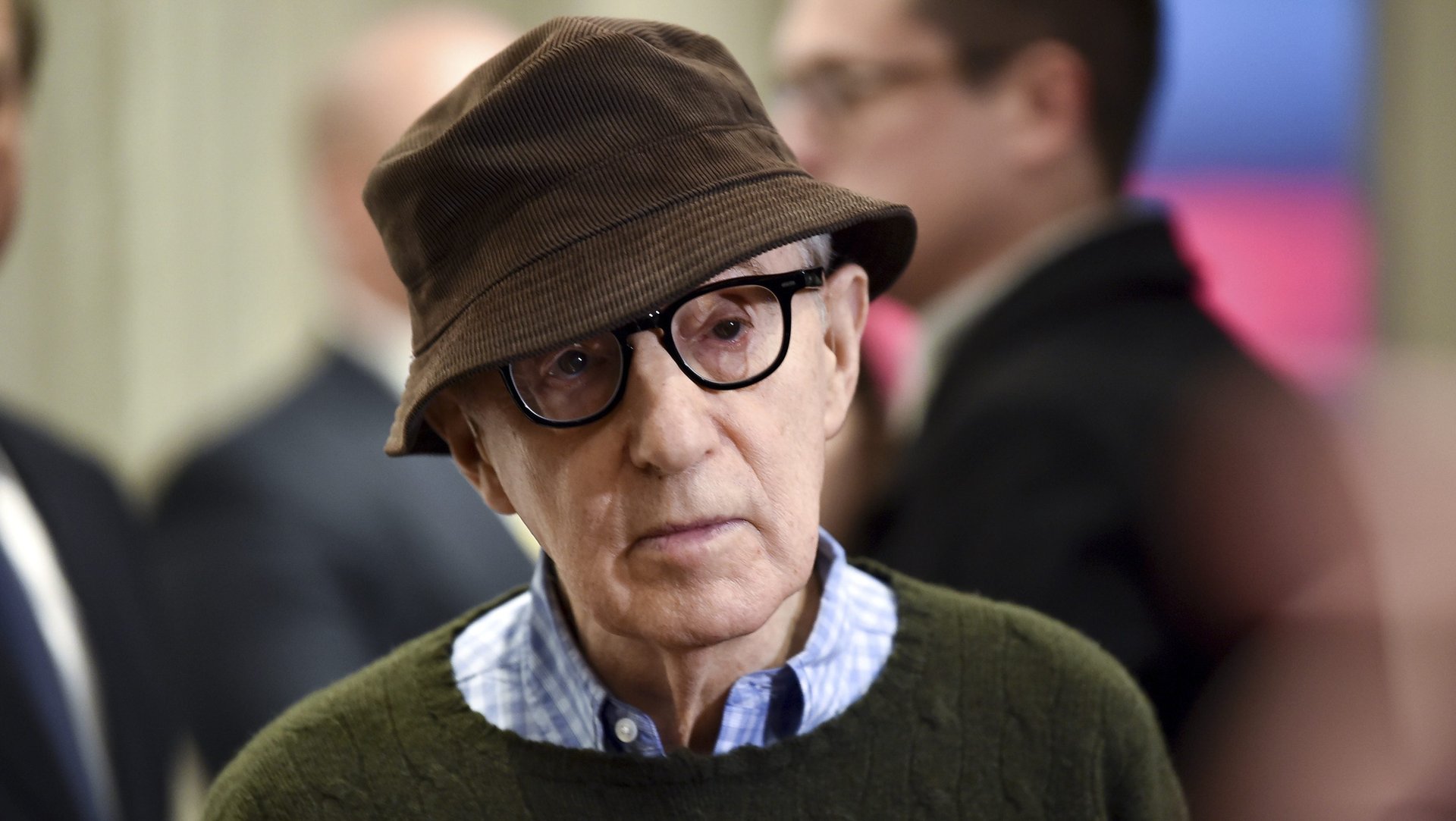Woody Allen is finally becoming a pariah
Many have commented on how Woody Allen has so far largely escaped the #MeToo movement, getting a free pass from an industry that has closely guarded the prolific filmmaker’s reputation for decades, despite accusations of child sex-abuse from his adopted daughter and ex-wife.


Many have commented on how Woody Allen has so far largely escaped the #MeToo movement, getting a free pass from an industry that has closely guarded the prolific filmmaker’s reputation for decades, despite accusations of child sex-abuse from his adopted daughter and ex-wife.
But now Allen’s reckoning appears to be getting underway. Actor Timothée Chalamet, one of the stars of Allen’s upcoming film A Rainy Day in New York, announced today on Instagram that he will donate his entire salary from the film to charities that support victims of sexual abuse. He follows the lead of Rebecca Hall, who said she regretted acting in the film and will donate her earnings to the “Time’s Up” legal defense fund, and Griffin Newman, who was the first to say he was donating his salary from acting in Allen’s film to charity.
“It was an educational experience for all the wrong reasons,” Newman said in October, of working with Allen. “I learned conclusively that I cannot put my career over my morals again.”
Allen, until recently considered one of the greatest living American directors, was accused in 1992 of molesting his then 7-year-old adopted daughter Dylan Farrow, who has maintained her story since. Though he was never charged with a crime, a judge found that Allen’s behavior toward Farrow was “grossly inappropriate” and that she needed to be protected from him. A Connecticut state’s attorney said he had probable cause to prosecute Allen and had even drawn up an arrest warrant, but claimed he decided not to pursue it to save Farrow from further turmoil. At the time of Farrow’s accusation, Allen was in therapy for his behavior toward her.
In an op-ed for the Los Angeles Times last month, Farrow, now 32, called out actors Kate Winslet, Blake Lively, and Greta Gerwig for voicing exasperation at the allegations against film mogul Harvey Weinstein, but having little to say against Allen, with whom they’ve all worked.
Farrow’s piece seems to have hit home. In the days since, several actors who have worked with Allen, including Gerwig, have stepped forward to say they regret doing so:
- Greta Gerwig, mentioning Farrow’s op-ed: “If I had known then what I know now, I would not have acted in the film. I have not worked for him again, and I will not work for him again.”
- Mira Sorvino, in an open letter to Farrow in the Huffington Post: “I swallowed the media’s portrayal of your abuse allegations against your father as an outgrowth of a twisted custody battle between Mia Farrow and him, and did not look further into the situation, for which I am terribly sorry.”
- David Krumholtz, on Twitter: “I deeply regret working with Woody Allen on Wonder Wheel. It’s one of my most heartbreaking mistakes.”
- Ellen Page, on Facebook a month before Farrow’s op-ed: “I did a Woody Allen movie and it is the biggest regret of my career. I am ashamed I did this.”
Other actors who have never worked with Allen have recently said that the decision was intentional. In response to a tweet that wondered why actors continue to work with Allen, Jessica Chastain replied, “Not everyone.”
Still, Allen has had hundreds of famous collaborators throughout his long career, and most of them have either declined to address the allegations against him, citing what Farrow mocked as the “deliberately created fog” surrounding the situation to avoid talking about it, or outright defended him.
That long list of actors includes Kate Winslet (who has also unapologetically worked with the convicted rapist Roman Polanski), Blake Lively, Alec Baldwin, Cate Blanchett, and Kristen Stewart. Most of them justify their choice by saying some version of the same thing: They all had good experiences with Allen on set, and don’t want to get involved in a complicated family situation.
Allen’s situation has emerged much more slowly than the slew of allegations against other Hollywood figures—and clearly his situation is different from producer Harvey Weinstein’s in several ways. As Vox film critic Alissa Wilkinson detailed, the accusation against Allen, though entirely credible, is still just a single accusation—though an egregious one—while Weinstein and many others who’ve succumbed to the movement have been accused by multiple people.
That’s apparently enough for some of those who’ve worked with Allen to pretend the allegation doesn’t exist. It was also made over 25 years ago, leading some to believe that it’s been dealt with, that the story is over. Allen and his team of lawyers and publicists have exploited these facts, turning them into the “fog” that Farrow attributes Allen’s continued success to.
But the fog is lifting, and Allen won’t be able to escape criticism much longer. Any actor who continues to work with him from this point forward will be faced with relentless questioning. The acclaimed director of Annie Hall and Manhattan, who has made exactly one movie per year for decades, may have made his last one in 2017.